Behind the Scenes of Porsche Tire Development – Porsche Customers Can’t Go Wrong Choosing “N” Certified Tires
公開日:2019.02.23

Porsche Certified Tires
Previously, I read an article titled “Yokohama Rubber Talks About Porsche-Approved Tire Development: Part 1” published in the magazine 911DAYS, and I realized that earning the Porsche certification for tires is no easy feat.
Recently, I came across an article introducing Porsche certified tires along with a video titled “Insights into tyre development.”

As soon as I read it, as usual, I was amazed and thought, “Wow, this is incredible (゚д゚)!” So I’d like to share some of the content with you.
Testing at the Nürburgring
At Porsche, every time a new model is born, a team of tire specialists carefully selects the optimal tires for that model. Only those selected tires can bear the “N” mark, the symbol of Porsche certified tires, stamped on the tire.
All new Porsche models are sent to the Nürburgring for rigorous testing to the limit. The Nürburgring is a circuit located in Nürburg, Rhineland-Palatinate, in northwest Germany. The Nordschleife (North Loop) alone is about 20 km per lap. Due to its harshness, it is also known as the “Green Hell.”
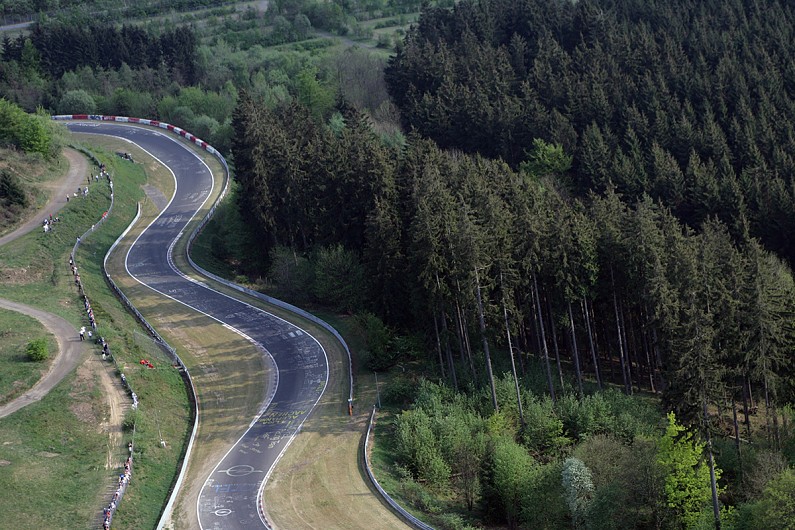
On April 16, 2018, French Carrera Cup driver Kevin Estre set a lap time of “6 minutes 56.4 seconds” at the Nürburgring. He was driving a naturally aspirated (NA) engine Porsche 911 GT3 RS.

While this wasn’t the fastest Nürburgring lap ever, it shaved 24 seconds off the previous GT3 RS model’s lap time. In a fiercely competitive environment where every manufacturer fights for even a single second, cutting 24 seconds is truly extraordinary.
Regarding this 24-second improvement by the 911 GT3 RS over its predecessor, Jan Frank, head of driving dynamics for the production GT models, said:
“Without advances in tire technology, achieving such a record-breaking time would have been impossible.”
Surprisingly, the tires fitted on the GT3 RS at that time, the “Michelin Pilot Sport Cup 2 R,” were not specially developed tires but regularly available commercial tires anyone could buy.
Uncompromising Tire Development
Tires greatly influence a car’s characteristics. Therefore, when Porsche develops a new model, whether it’s a rear-engine sports car or a front-engine four-door, tires are considered one of the most important components.
Moreover, Porsche demands the realization of both comfort and durability while achieving a high level of driving dynamics—two seemingly contradictory goals at a very high level.
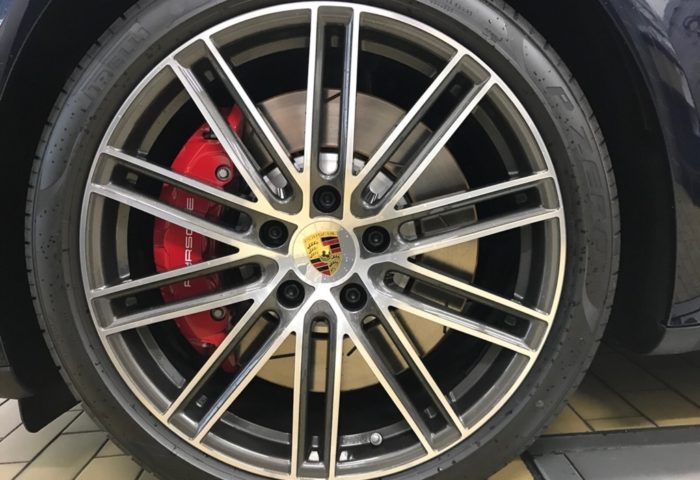
Michael Haupt, a specialist in the tire development department, said:
“Tires are a crucial element for the chassis to perform, but there are very few tires that combine all the required characteristics without any compromise.“
Tire development involves many complex factors. Tires must fit within the wheel housing, and requirements vary depending on vehicle weight, weight distribution, and engine torque affecting the driven wheels. Additionally, noise, wet performance, rolling resistance, and durability must meet strict regulations.
This makes it very challenging for tire manufacturers to meet Porsche’s demands.
Karsten Hoffmann, Porsche’s head of tire development, explained:
“We provide tire manufacturers with detailed data, including our target braking distances and Nürburgring lap times, and ask them to develop tires that meet these performance and characteristic requirements.”
Tire development starts as early as four years before production of a new model begins. Each tire manufacturer produces several prototypes of front and rear tires that meet the requirements set by Porsche’s Weissach development center, a process that takes about three months.
After extensive testing and adjustments, which Porsche regards as a non-negotiable critical process, only tires that meet all Porsche’s criteria receive the coveted “N” mark. So, Porsche customers can rest assured by choosing “N” certified tires.
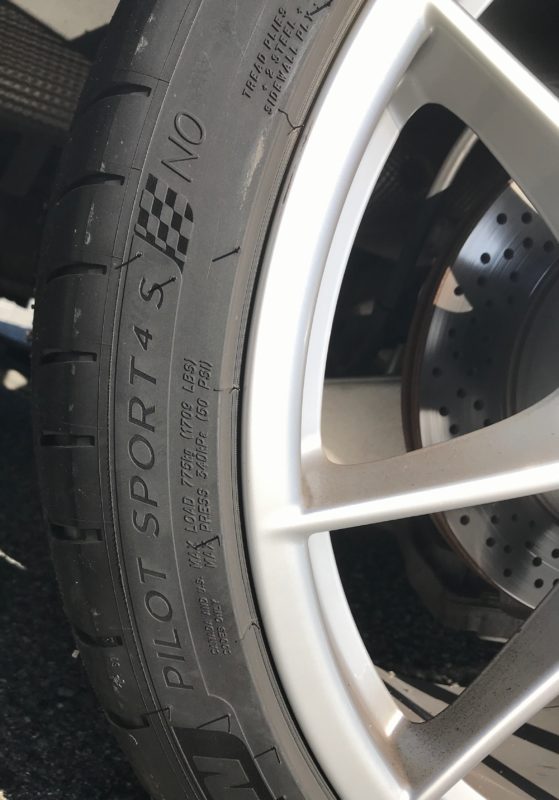
Commercial Models Are More Challenging
Surprisingly, developing tires for high-performance models is easier than for commercial models. Porsche’s tire development head Karsten Hoffmann said, “Developing tires for commercial models is far more challenging for us.”
Tires developed for motorsports have a narrow temperature range and precisely defined wheel loads, making development easier.
On the other hand, commercial model tires face different chassis specifications, complex electronic control systems, and a wide variety of road conditions, so the range of tire requirements is much broader. Therefore, developing tires for commercial models is more difficult.
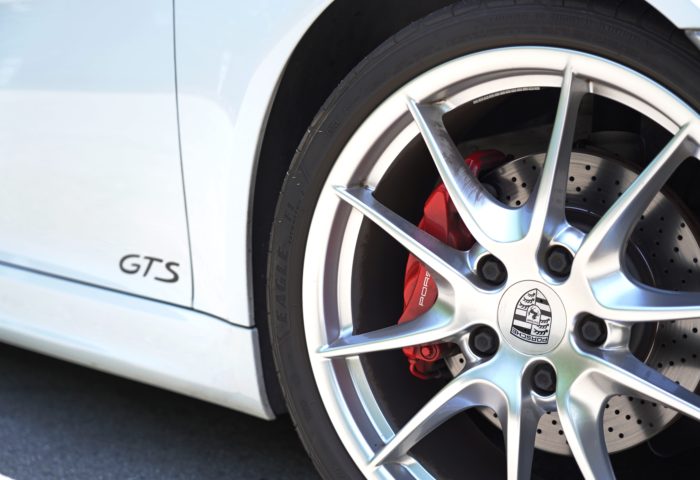
Nonetheless, tire manufacturers have made remarkable progress over the past decades. It was long said to be difficult to develop tires that combine “excellent wet handling and low rolling resistance with outstanding dry performance and high mileage,” but now it’s possible.
For example, the material “silica” can be used to reduce the carbon black content in tires, accelerating development. And Porsche will surely continue to break its best lap records at the Nürburgring Nordschleife.
In fact, on October 25, 2018, Porsche, with the cooperation of Manthey Racing, set a new lap record at the Nürburgring Nordschleife. The car was the “Porsche 911 GT2 RS MR,” with a lap time of 6 minutes 40.3 seconds—beating the Lamborghini Aventador SVJ’s road car record of 6 minutes 44.97 seconds set in July that year.

*Image source: AUTO CAR JAPAN “Porsche 911 GT2 RS MR sets fastest production car lap at Nürburgring, reclaiming from Lamborghini“
The Crucial Role of Test Drivers
Porsche has four test drivers dedicated to tire development, but they rarely appear at the Weissach development center office. Instead, they frequently test drive at the Nürburgring Nordschleife, Nardò Technical Center in southern Italy, and the Contidrom near Hanover.
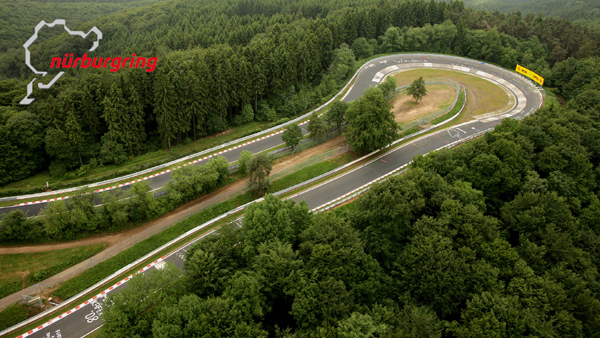
They constantly verify whether the car can be precisely controlled when driven to its performance limits.
However, driving fast is not the only job of test drivers. They also play a vital role in providing highly reproducible results and differentiated reports under all conditions—dry, wet, snow-covered, and icy roads—while liaising with tire manufacturers.
Most test drivers come from motorsports backgrounds. One of them, 46-year-old Timo Kluck, who has served as a Porsche tire test driver for 18 years, said:
“Porsche is a high-performance car. By fitting the right tires, Porsche owners can experience that high level of performance.”
Thanks to the tire manufacturers and Porsche’s tire development team’s daily efforts, Porsche-certified “N” tires come to life in the world.
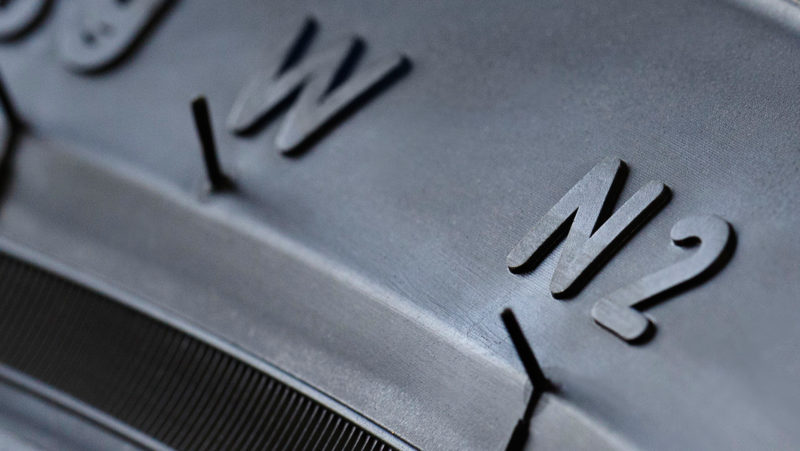
The More You Know, the More You Appreciate Porsche
Wow, Porsche really is amazing. I had heard before that sports car and supercar makers place great importance on tire development, but learning more about Porsche has reaffirmed that.
I used to joke, “I love Porsche, and it would be fun to work there~” but as I’ve learned more about Porsche recently,
I realize that with such perfectionism, zero compromise, and meticulous teams, I wouldn’t last long working there. (Plus, I don’t speak German or English, so they wouldn’t hire me anyway, lol)
So, although Porsche certified tires are expensive, I’ve come to believe that there’s no better choice than Porsche certified tires, as they maximize Porsche’s performance and also last longer.
*Image and article sources: Porsche news “A Good Mixture” and “New tyres for historic sports cars“
このブログが気に入ったらフォローしてね!


Comment ( 0 )
Trackbacks are closed.
No comments yet.